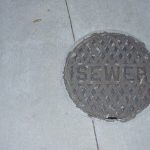When a pipe bursts or other
plumbing emergency situations occur, many of us will immediately react like it is just one of those things. Although it may be an inconvenience, accidents just happen, or is there a way to prevent your plumbing emergencies? While you are not likely to eliminate the possibility of ever having any type of plumbing emergency, there are ways that you can reduce the risk.
The Benefits of Routine Maintenance:
Routine maintenance not only ensures that your plumbing system is operating efficiently, but it can also reduce the risk of an emergency situation occurring. During the routine maintenance, an experienced professional plumber can assess your system to look for any potential problem issues. Any minor leaks and loose connections can be corrected before they develop into a major emergency.
Proactive Action:
You can also take proactive action to avoid plumbing emergencies. Since your plumbing system doesn’t tend to have moving parts, you may not have given any thought to how it is treated. The fact is that the way you treat your drains and fixtures can have a direct effect on plumbing emergency situations. Therefore, you can take proactive action such as taking care of your drains to avoid clogs and blockages developing. For example, you should never pour fats or oils down your drain. These liquids congeal as they cool, causing a sticky clog that can combine with sinuous fibers to block the drain. To avoid clogs, you need to seriously consider what you put down your drains, particularly in the kitchen. Many people assume that a garbage disposal allows the drain to handle any waste, but this is not the case. Your kitchen sink should never be treated like a garbage can, and there are some items that should never be put in the disposal.
You can also minimize the risk of bathroom plumbing emergencies by following similar rules. You should protect your bathroom drains by ensuring hair, and other debris is not flushed away. Additionally, think about what you try to flush down your toilet. Your toilet is only designed to dispose of human waste and toilet paper. You should not flush feminine hygiene products, diapers, cotton balls or any other item. These items can swell up and block the pipe, putting your bathroom at risk of flooding. If the items are carried away from the toilet, they can create problems in sewer systems and septic systems.
Take Note of Minor Issues:
Finally, you can minimize the risk of emergency situations by taking note of any minor issues and ensuring that they are promptly addressed. A small leak can not only waste a great deal of water, but it will not resolve itself. It is more likely to worsen over time until the pipe is placed under strain and breaks. By having the small leak repaired promptly, you will not only face a smaller repair bill, but ensure that the issue is resolved before it develops into a major problem.
While these points may appear to be only common sense, many homeowners may overlook how beneficial this attention can be. With a little attention and care, you can minimize the risk of your home being affected by a
plumbing emergency.
By Giovanni Longo President Flood Brothers Plumbing
Giovanni Longo is a 3rd generation master plumber who has been practicing his craft and trade in the greater Los Angeles area for well over a decade and a half. A plumbing and hydraulics-engineering innovator, Giovanni’s particular world-class expertise focuses on dealing with challenging sewer system designs as well as resolving complex commercial and residential draining issues. As a certified Flood Mitigation expert, he is also well versed in a wide variety of water damage and remediation solutions.





